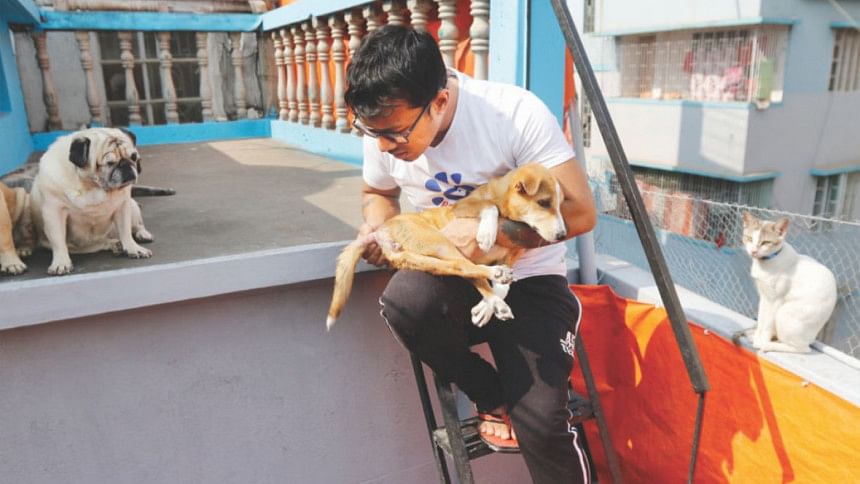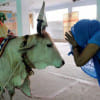Bangladesh needs a formalised animal rescue system

On December 21, a member of the 13-year old animal rescue platform named "Robinhood: the Animal Rescue Society" was electrocuted while rescuing a parrot. Volunteers of Robinhood went to the rooftop of a three-storey building to rescue the trapped bird. It is upsetting how the volunteer, Tashfian Atif had to lose his life due to electrocution in the process, as he lacked adequate safety equipment. As of today, the court has not delivered a judgement regarding this case but an interim order. Likewise, as you are reading the paper today, there exists no formal institution in Bangladesh that can rescue trapped animals since December 2023. Despite the existence of the Animal Welfare Act 2019, there is an absence of proper guidelines, recruitment and training processes for rescuers, or even an enforcement authority that can be relied on. This is a gross violation of animal rights that cannot be curtailed under the pretext of human rights because as they say, "two wrongs don't make a right."
As much as Atif's devotion to animal rescuing is commendable, he perhaps would not have had to lose his life if there were proper state sanctioned trainings, equipment and a formal institution in the first place. Robinhood—who were once the only option for nation-wide 999 hotline emergencies involving animal rescues—has been discharged of their self-driven humane duties since December 2023. Of course, being the only option did not necessarily mean they were faultless. However, the tragedy now is that with their absence, there are no options remaining to rescue precariously trapped animals. Unless, of course, individuals step in, again, without any formal training to take matters into their own hands—awaiting bigger accidents. Individuals are vulnerably stepping in rather than watching animals suffer, self-educating themselves to help animals avoid suffering when it is a national duty instead. A civilised country is recognised by the wellbeing of its inhabitants, which cannot be limited to humans.
It is high time for comprehensive legislation to protect the voiceless animals than forcibly stopping institutions trying to initiate change, before having a better alternative at hand. First and foremost, it is imperative that there is a state sanctioned solution for the time being to deal with emergencies during this period of vacuum. What would happen to the animals that are harmed today? Or perhaps were harmed already since last year? Who would be held accountable for their misery? By banning an institution without looking at the bigger picture or creating better enforcement measures, we are neglecting the main problem at hand.
Countries like the United States of America and India have firefighters working successfully as animal rescuers. This, however, may be an impractical solution for Bangladesh. However, it is better than not having a trained group of rescuers incapable of carrying out risky rescues. Another option could be training the existing freelance animal rescue groups or individuals. The state of Minnesota is widely known for ensuring classes of Basic Animal Rescue Training (BART), providing hands-on skills in the areas of animal restraint and handling, patient assessment, first aid, and CPR. The free of cost, two-hour training course also provides interested groups with an emergency medical equipped kit containing the necessary supplies to help effectively rescue, resuscitate, and support the medical needs of animals, upon its completion.
If our law-making bodies dealt with animal rights at the right time, human rights would not have to have been questioned. Atif would not have had to lose his life. The countless birds, cats and dogs who add diversity to your community would not have had to be sacrificed to prove a point. If there was a formal institution in the first place, this would not have happened.
Sayere Nazabi Sayem is an LLB graduate and a cat mom who advocates for animal rights.
Views expressed in this article are the author's own.
Follow The Daily Star Opinion on Facebook for the latest opinions, commentaries and analyses by experts and professionals. To contribute your article or letter to The Daily Star Opinion, see our guidelines for submission.

 For all latest news, follow The Daily Star's Google News channel.
For all latest news, follow The Daily Star's Google News channel. 










Comments